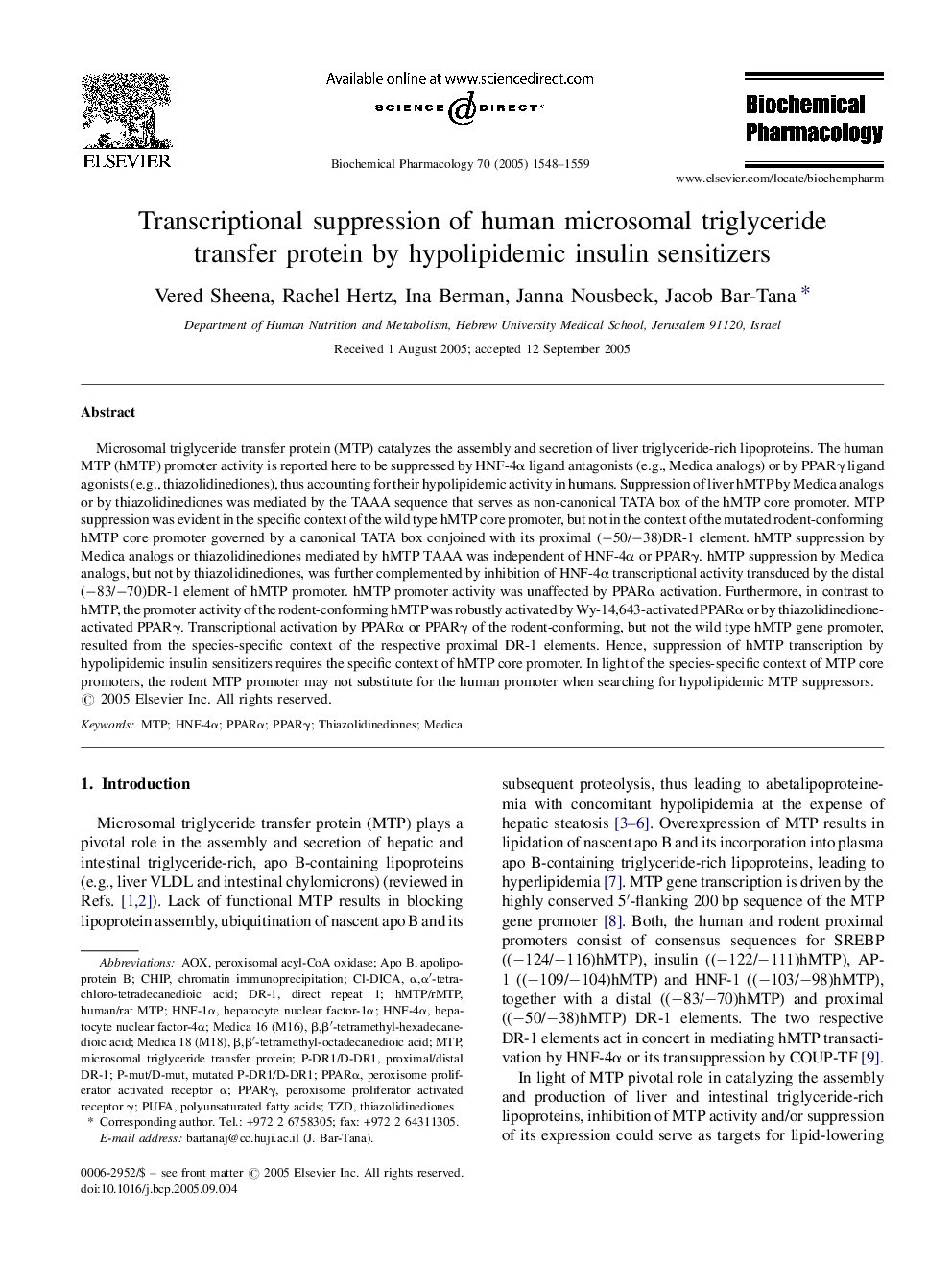| Article ID | Journal | Published Year | Pages | File Type |
|---|---|---|---|---|
| 9001530 | Biochemical Pharmacology | 2005 | 12 Pages |
Abstract
Microsomal triglyceride transfer protein (MTP) catalyzes the assembly and secretion of liver triglyceride-rich lipoproteins. The human MTP (hMTP) promoter activity is reported here to be suppressed by HNF-4α ligand antagonists (e.g., Medica analogs) or by PPARγ ligand agonists (e.g., thiazolidinediones), thus accounting for their hypolipidemic activity in humans. Suppression of liver hMTP by Medica analogs or by thiazolidinediones was mediated by the TAAA sequence that serves as non-canonical TATA box of the hMTP core promoter. MTP suppression was evident in the specific context of the wild type hMTP core promoter, but not in the context of the mutated rodent-conforming hMTP core promoter governed by a canonical TATA box conjoined with its proximal (â50/â38)DR-1 element. hMTP suppression by Medica analogs or thiazolidinediones mediated by hMTP TAAA was independent of HNF-4α or PPARγ. hMTP suppression by Medica analogs, but not by thiazolidinediones, was further complemented by inhibition of HNF-4α transcriptional activity transduced by the distal (â83/â70)DR-1 element of hMTP promoter. hMTP promoter activity was unaffected by PPARα activation. Furthermore, in contrast to hMTP, the promoter activity of the rodent-conforming hMTP was robustly activated by Wy-14,643-activated PPARα or by thiazolidinedione-activated PPARγ. Transcriptional activation by PPARα or PPARγ of the rodent-conforming, but not the wild type hMTP gene promoter, resulted from the species-specific context of the respective proximal DR-1 elements. Hence, suppression of hMTP transcription by hypolipidemic insulin sensitizers requires the specific context of hMTP core promoter. In light of the species-specific context of MTP core promoters, the rodent MTP promoter may not substitute for the human promoter when searching for hypolipidemic MTP suppressors.
Keywords
Related Topics
Health Sciences
Pharmacology, Toxicology and Pharmaceutical Science
Pharmacology
Authors
Vered Sheena, Rachel Hertz, Ina Berman, Janna Nousbeck, Jacob Bar-Tana,
